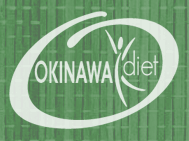The Okinawa Diet program
More on the diet...
The Okinawa Diet™ teaches you:
The Right Carbs: Fruits,
Vegetables and Whole Grains
What do we mean by "the right carbs"? With the current
low-carb diet craze, all carbohydrates have been given a bad rap.
The truth is, certain carbohydrates affect blood sugar and insulin
(the hormone that signals the body to store fat) very differently
than others. Foods that cause a large and rapid increase in your
insulin levels are the most significant contributors to obesity
(excessive body fat). Not all carbs create these big insulin
spikes; the carbs that don't, we call the right carbs.
The right carbs are "whole" foods, or foods in
their natural state, such as vegetables, fruits, whole grains and
other unprocessed foods. These foods tend to have
very low insulin scores, are low in caloric density, and are your
biggest allies in your struggle to control your weight.
Highly processed foods (white bread, bakery
goods, sweets, etc.) are the biggest insulin culprits and are
definitely the wrong carbs to eat in
abundance.
Diets like the Okinawa Diet™ that are full of
vegetables, fruit and whole grains will not only decrease your risk
for obesity, heart disease, cancer, diabetes, cataracts, stroke and
hypertension, but they will keep you looking younger (and living
longer). It's one of the keys to the success of the older Okinawans
where there are more lean and healthy elderly than anywhere else --
but who look and feel decades younger.
An increasing amount of research is showing that restricting
good carbs in favor protein-rich meat may not only contribute to a
host of serious health problems, but obesity rates have actually
been shown to be higher in populations with low carb
diets.
So why are low carb diets so popular? Because most people do
indeed experience short term weight loss on low carb
diets. Unfortunately, much of that weight loss is in the form of
water and lean muscle mass (needed to help you burn calories)
not just fat.
Bottom line: eat like the Okinawan elders and you won't have to
worry about growing fat from carbs. Plus, you will reap the added
benefits of increased health and longevity.
top
The Right Fats:
Polyunsaturated and Monounsaturated Fats
The Okinawa Diet™ program recommends cutting fat
in general as a great means of lowering total caloric intake. Fats
have more than double the Caloric Density (CD) of either Carbs or
protein, so cutting fat makes it easier for you to cut calories,
lose weight and prevent weight gain.
When reducing your fat intake it's important to remember that
the type of fat is the crucial criteria:
- The highly touted Mediterranean diet is high in fat but low in
health risks because the fat in that diet is
monounsaturated, the heart-healthy,
good-for-you fat.
- Eat less saturated and trans fat. Americans
and other Westerners eat more of the "bad" fats, the kind that clog
arteries and raise "bad" cholesterol: saturated fat, derived mostly
from animal sources like red meat and dairy
- Eat fewer trans fats: these are formed from
the partial hydrogenation of vegetable oils and found in most
margarines, French fries and packaged foods like chips and cookies.
These fats, unfortunately, are often found in too high quantity on
low carb diets due to their emphasis on animal foods, such as beef
and bacon and eggs
top
The Right Proteins:
Plant and Lean Animal Proteins
Proteins are the essential building blocks from which our cells,
organs, muscles and other tissues are made. They also serve as
hormones, enzymes and antibodies. So its important that we get
enough protein in our diets.
- The Okinawa Diet™ substitutes lower caloric
density (CD) plant proteins for some of the higher CD meat
proteins.
- High protein foods can help decrease hunger and prolong satiety
more than high-carb or fatty foods.
- Too much protein can lead to increase risk of gout and kidney
stones. These are frequently mentioned side effects of low-carb
diets such as the Atkins diet.
- Lean animal proteins and plant proteins tend to be the best
sources of protein. These protein sources are the most
"heart-healthy" proteins.
top
The Right Fiber: It's all
good
- Fiber is a complex carbohydrate found only in plants. It has
no calories -- the caloric density (CD) of fiber
is 0.0 -- because the body does not absorb it
- High fiber foods will fill you up without additional weight
gain and help protect against cancer and cardiovascular
disease.
top
The Right Fluids: Tea
and Water
- In general, the more water a food contains, the less
calorically dense it is and the more of it you can eat
- Soft drinks, sugared teas and fruit juices are all high in
caloric density and should be kept to a minimum
- Black and green (including jasmine and oolong) teas are all low
in caloric density and may help prevent cancer, heart disease and
stroke. Some studies suggest they may also help burn fat
- Water has a caloric density of 0.0 and should
be consumed in healthy quantities. The Okinawa Diet™ recommends you drink at least 8 glasses of water a
day.
|

